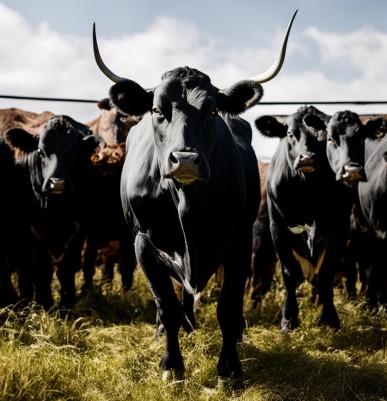110 people for seven specialties: BSUT spoke about targeted training
Photo by BSUT May 5, Mogilev. This year, the Belarusian State University of Food and Chemical Technologies (BSUT) plans to admit 110 people for seven specialties on the terms of targeted training. This was reported to a BELTA correspondent by the executive secretary of the university's admissions committee, Yuri Grebentsov.
"Six out of seven specialties are on the list of those most in demand by the economy. The university's classical specialties are the most popular among enterprises that order personnel. For example, 43 and 30 applications were received for the specialties "production of food products from animal raw materials" and "production of food products from plant raw materials" from leading enterprises of the food processing industry, including MEAT processing plants, MILK processing plants, and confectionery factories, respectively. And the geography of the personnel ordering companies is all of Belarus," Yuri Grebentsov noted.
To date, the country's enterprises have concluded more than 60 targeted training agreements with applicants.
"Applicants planning to enter our university to receive an education on the terms of targeted training take an internal entrance exam in oral form in the academic subject, which is determined as the subject of the first profile test for the chosen specialty," said Yuri Grebentsov. "And applicants planning to enter the specialties of "production of food products from plant raw materials" and "production of food products from animal raw materials" after studying in classes of the agricultural profile, if they have marks of at least 6 points in the academic subjects "Chemistry" and "Mathematics" in the certificate, are enrolled in BSUT without entrance tests if they have a targeted referral from an enterprise corresponding to the profile of the specialty, based on the results of the interview."
As the rector of the university Maxim Kirkor noted, BSUT is the only university that trains a wide range of specialists for the food industry. Modern technologies here also do not stand still, and therefore the list of specialties is constantly growing. "This year we are recruiting for a new specialization, "business engineering in the food industry," with the qualification of "engineer-economist." As entrance exams, applicants will need to pass mathematics, a foreign language, and Belarusian or Russian," he emphasized. "The new profile corresponds to a critically important approach to the professional training of specialists, based on interdisciplinary and innovative thinking. The essence is in the integration of modern knowledge from economics, engineering, management, marketing, nutrition science, and modeling effective business processes in food industry organizations using information technology."
According to the rector, the combination of technical and managerial knowledge and skills will enable graduates to implement complex business solutions, create new competitive and environmentally friendly products and services, apply optimal strategies, technologies and processes taking into account human needs, assess risks and manage development projects.
"Six out of seven specialties are on the list of those most in demand by the economy. The university's classical specialties are the most popular among enterprises that order personnel. For example, 43 and 30 applications were received for the specialties "production of food products from animal raw materials" and "production of food products from plant raw materials" from leading enterprises of the food processing industry, including MEAT processing plants, MILK processing plants, and confectionery factories, respectively. And the geography of the personnel ordering companies is all of Belarus," Yuri Grebentsov noted.
To date, the country's enterprises have concluded more than 60 targeted training agreements with applicants.
"Applicants planning to enter our university to receive an education on the terms of targeted training take an internal entrance exam in oral form in the academic subject, which is determined as the subject of the first profile test for the chosen specialty," said Yuri Grebentsov. "And applicants planning to enter the specialties of "production of food products from plant raw materials" and "production of food products from animal raw materials" after studying in classes of the agricultural profile, if they have marks of at least 6 points in the academic subjects "Chemistry" and "Mathematics" in the certificate, are enrolled in BSUT without entrance tests if they have a targeted referral from an enterprise corresponding to the profile of the specialty, based on the results of the interview."
As the rector of the university Maxim Kirkor noted, BSUT is the only university that trains a wide range of specialists for the food industry. Modern technologies here also do not stand still, and therefore the list of specialties is constantly growing. "This year we are recruiting for a new specialization, "business engineering in the food industry," with the qualification of "engineer-economist." As entrance exams, applicants will need to pass mathematics, a foreign language, and Belarusian or Russian," he emphasized. "The new profile corresponds to a critically important approach to the professional training of specialists, based on interdisciplinary and innovative thinking. The essence is in the integration of modern knowledge from economics, engineering, management, marketing, nutrition science, and modeling effective business processes in food industry organizations using information technology."
According to the rector, the combination of technical and managerial knowledge and skills will enable graduates to implement complex business solutions, create new competitive and environmentally friendly products and services, apply optimal strategies, technologies and processes taking into account human needs, assess risks and manage development projects.


























































